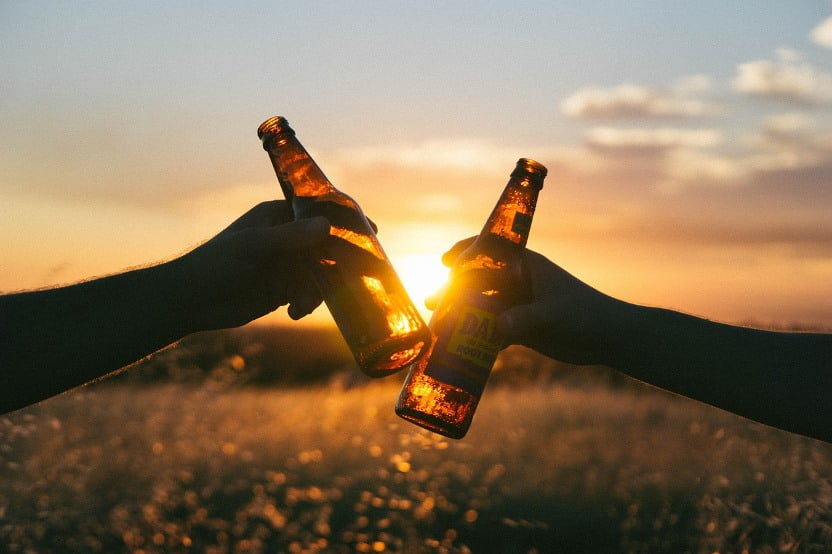Consuming alcohol in college could negatively affect your career: A new study links the drinking habits of students to their ability to land a job after graduation.
Drinking alcohol six times a month reduces the probability that a new college graduate will land a job by 10 percent, according to research conducted at Tel Aviv University (TAU) and Cornell University.
According to the researchers, previous studies were unable to determine the precise effect of alcohol consumption on first-time employment. But according to the new study, each individual episode of student binge-drinking during a month-long period lowers the odds of attaining full-time employment upon graduation by 1.4 percent.
“The manner in which students drink appears to be more influential than how much they drink when it comes to predicting the likelihood of getting a job upon graduation,” TAU‘s Prof. Peter Bamberger, who co-authored the study, said in a statement.
“Binge-drinking” is defined as ingesting four or more alcoholic drinks within two hours by a woman and five or more alcoholic drinks within two hours by a man, according to the National Institute on Alcohol Abuse and Alcoholism.
How often, not how much
The research found that a non-binge pattern of drinking does not adversely impact job search results unless and until their drinking reaches binge levels.
Data for the study was provided by 827 individuals who graduated in 2014, 2015, and 2016 from Cornell, the University of Washington, the University of Florida, and the University of Michigan.
According to Bamberger, “a student who binge-drinks four times a month has a 6 percent lower probability of finding a job than a student who does not engage in similar drinking habits. Those students who drank heavily six times a month increased their unemployment probability to 10 percent.”
Sign up for our free weekly newsletter
SubscribeSEE ALSO: Many Seniors Turn To Substance And Alcohol Abuse After Retirement, Study Finds
Funded by a $2.2 million grant from the National Institute on Alcoholism and Alcohol Abuse, the research is the first installment of a longitudinal study on how alcohol misuse affects the college-to-work transition. More than 16,000 individuals have been contacted as part of the five-year study.
SEE ALSO: Hand Over The Keys: Virtual Breathalyzer Uses Advanced Tech To Curb Drunk Driving
According to the researchers, who previously studied substance abuse in the workplace, their new paper is consistent with the recent emphasis on the impact of drinking behavior on career transition, and is in concert with previous work on the entry and socialization of newcomers into an organization.
The study, recently published in the scientific publication Journal of Applied Psychology, was co-authored by Prof. Peter Bamberger of TAU and Cornell and Prof. Samuel Bacharach of Cornell University, in collaboration with Prof. Mary Larimer and Prof. Irene Geisner of the University of Washington; Jacklyn Koopmann of Auburn University; Prof. Inbal Nahum-Shani of the University of Michigan; and Prof. Mo Wang of the University of Florida.
Photos: Tel Aviv University, Pixabay
Related posts

Israeli Medical Technologies That Could Change The World

Rehabilitation Nation: Israeli Innovation On Road To Healing







Facebook comments